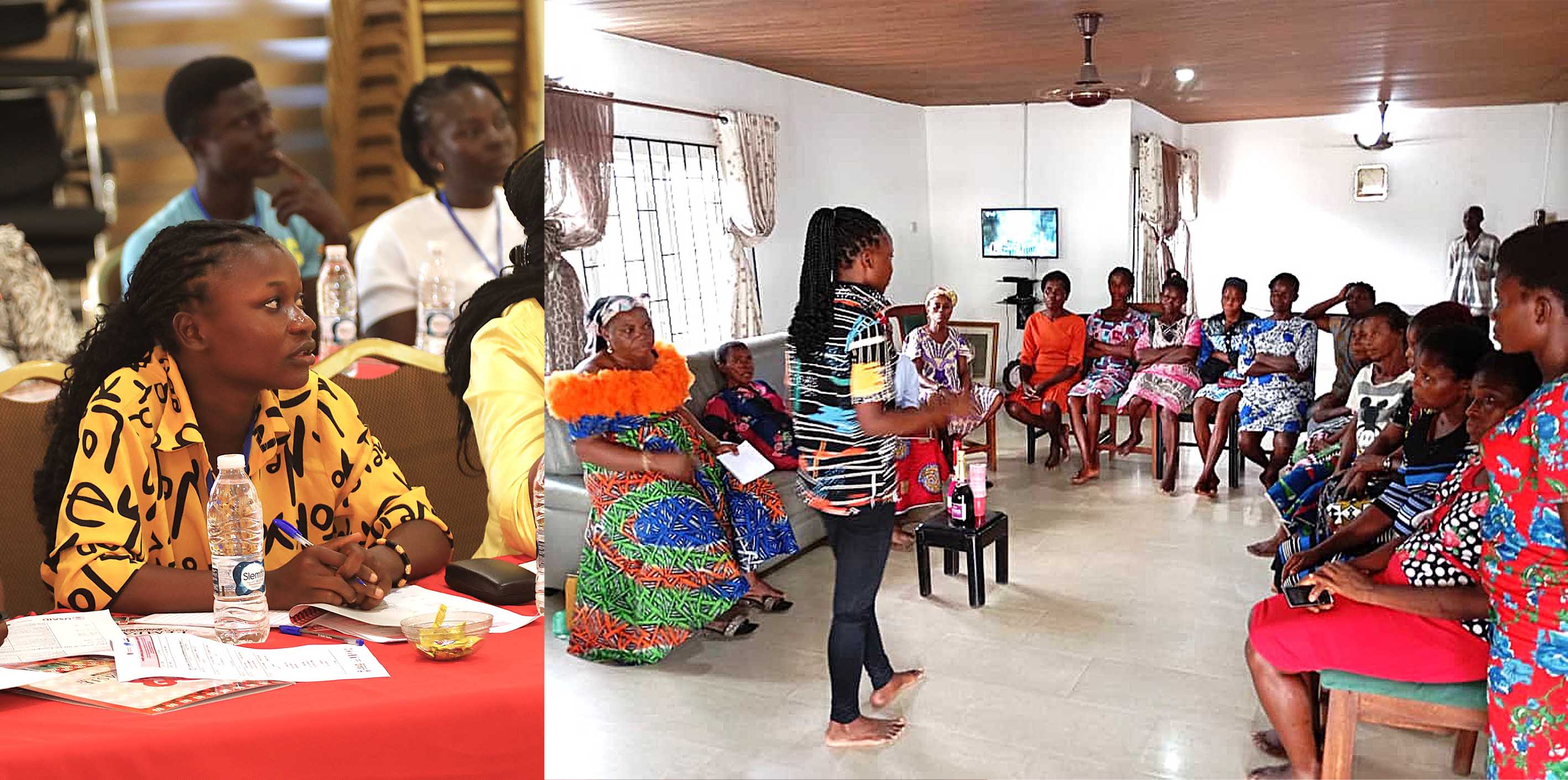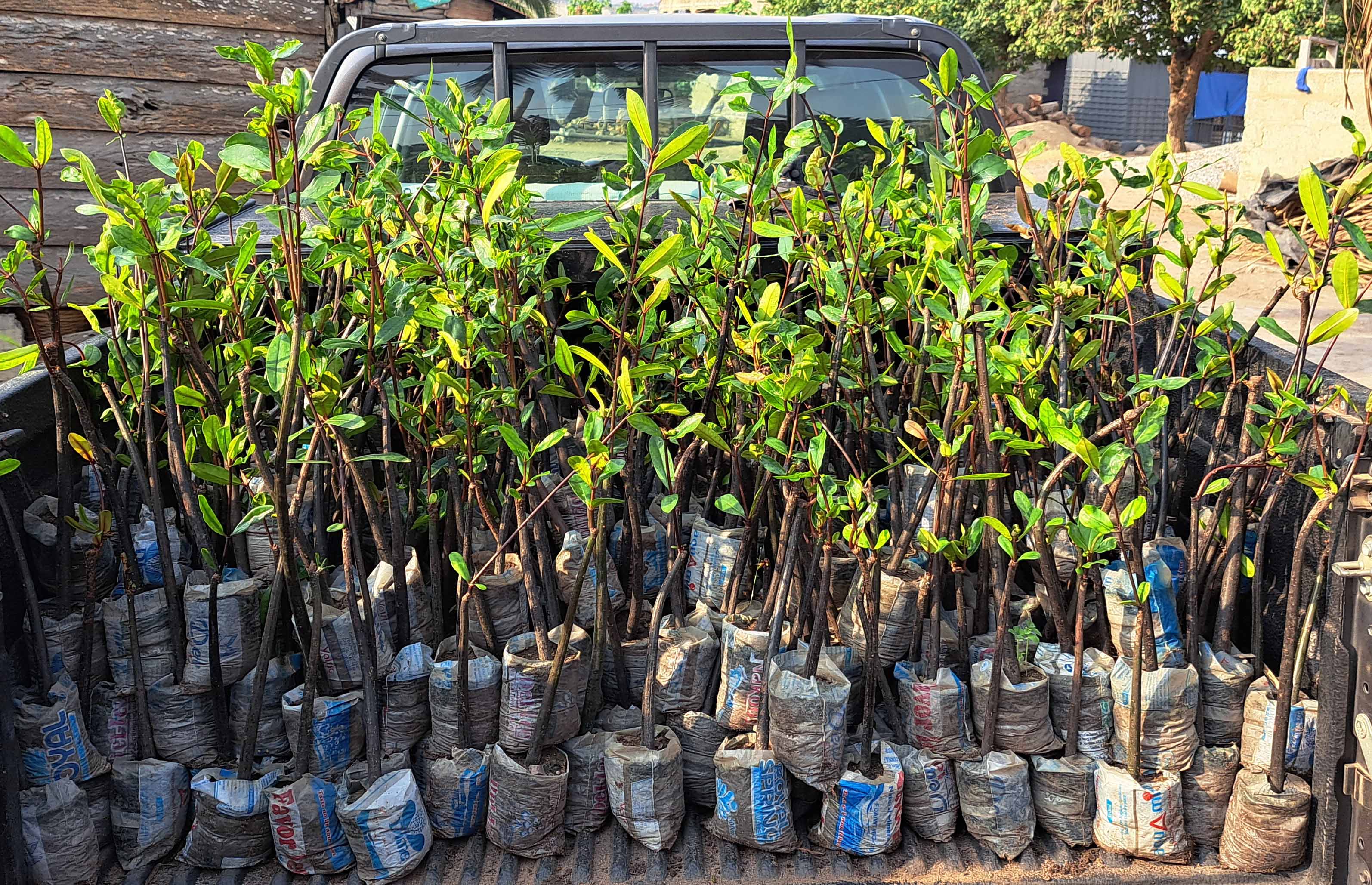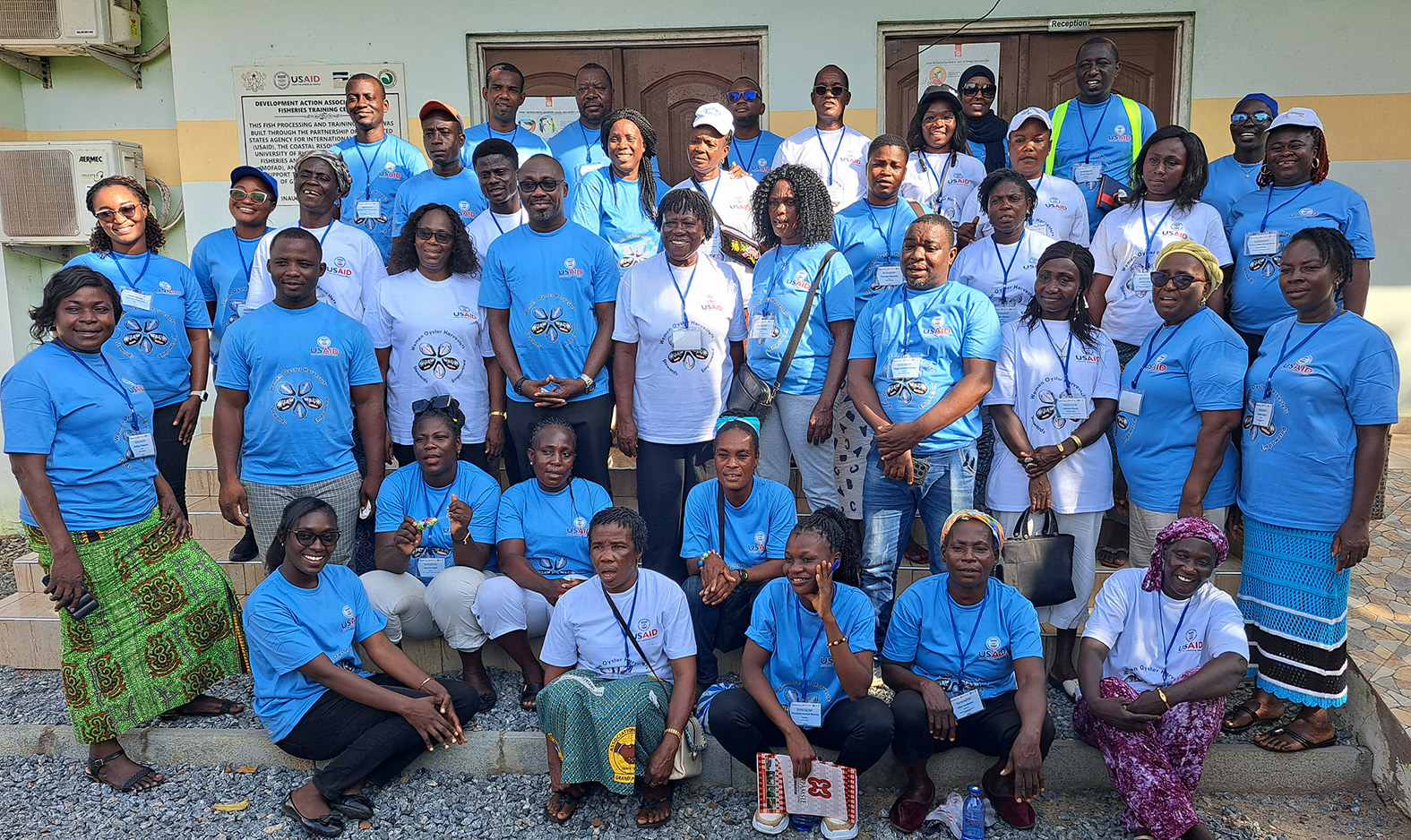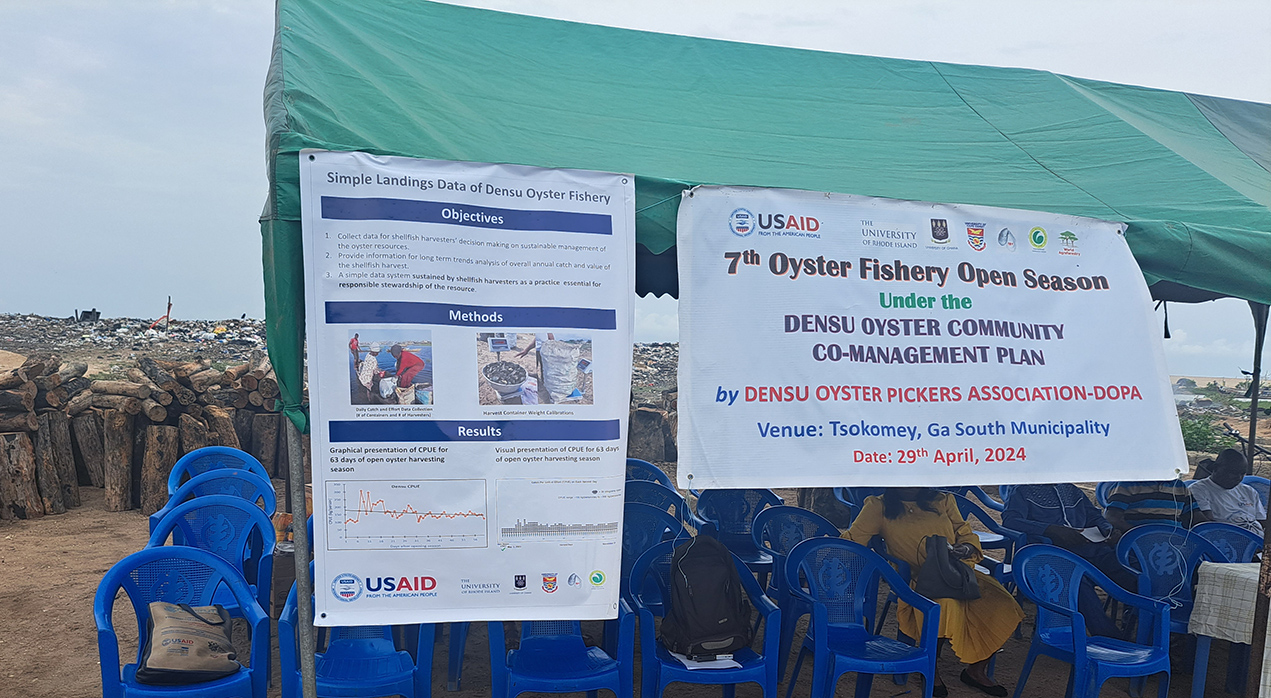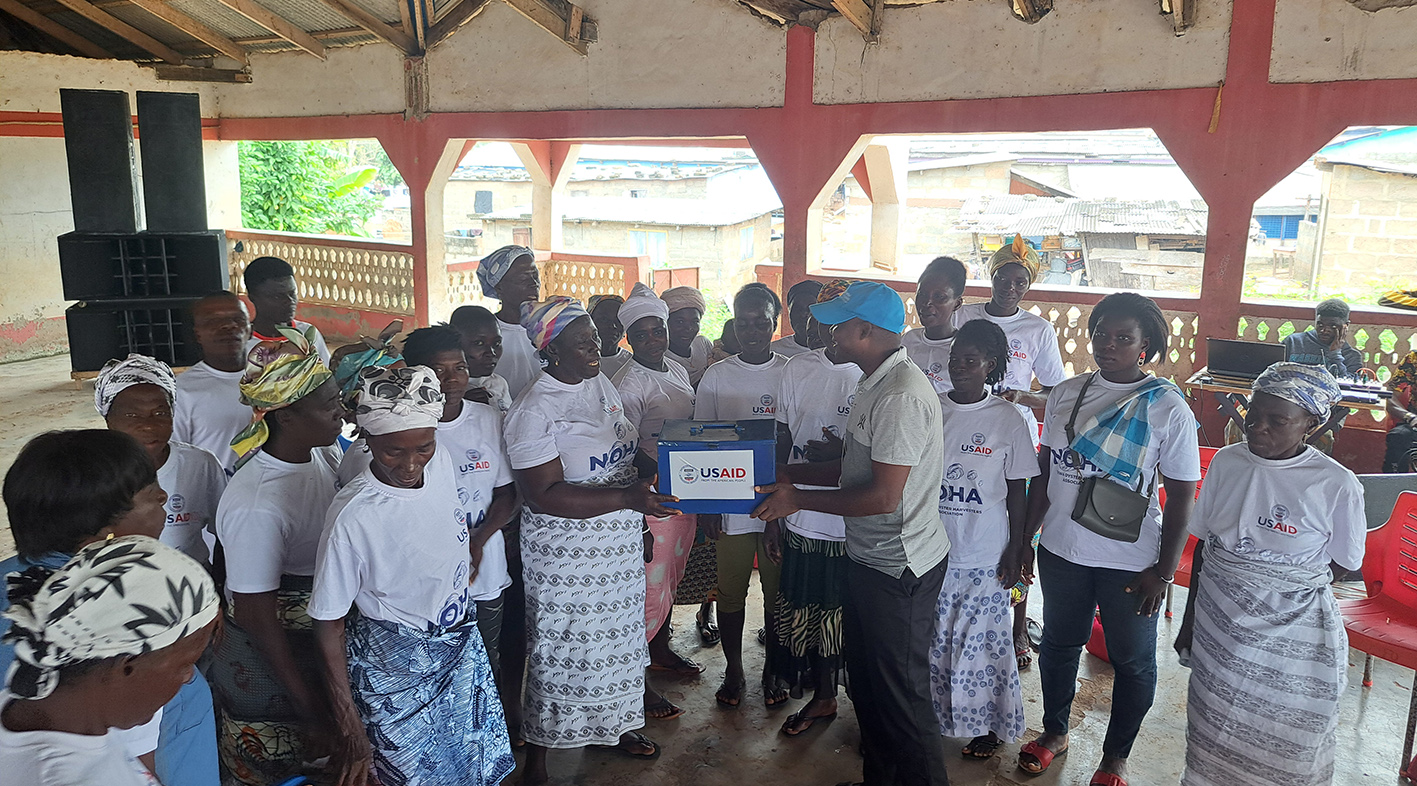GEOGRAPHICAL SCOPE OF OUR WORK
News, Stories & Conversations








FEATURED VIDEO
A Practical Guide on Shellfish Co-management Planning in West Africa
This video the animated version of the booklet "A Practical Guide on Shellfish Co-management Planning in West Africa". It is designed to provide practical guidelines on the steps for the planning of co-management in the Shellfisheries of West Africa.
FEATURED PUBLICATION
Value Chain and Economic Analysis of the Shell By- Product of Bivalve Fisheries in Ghana and The Gambia: An Assessment of Oyster, Cockle, and Clam Shells
Featured publication
This report examines the shell value chain and the economic potential of shell by-products from bivalve fisheries in Ghana and The Gambia. The study focuses on three key bivalve species: the West African mangrove oyster (Crassostrea tulipa), West African bloody cockle (Senilia senilis), and the Volta clam (Galatea paradoxa). It provides insights into the opportunities and challenges within the shell value chains of these species. Shells were primarily generated as a by-product of shellfish processing and were used for various purposes and products. But the key uses found by this study were milling into granular powder for animal feed formulation;...
Published Oct, 2024
Author(s)
Okyere, I., Chuku, E. O., Taale, F., Nunoo, J. Krampah, E. A., Clottey, M. N. K., Adade, R., Ahenkorah, V., Agboli, N. A., Osei, I. K., Dzantor, S. A., Gyimah, C. A., Kent, K., Josephs, L., and Aheto, D. W.
Publisher / Institution
University of Cape Coast, Center for Coastal Management, Cape Coast, Ghana, Development Action Association (DAA), Accra, Ghana, TRY Oyster Women’s Association, Old Jeshwang, The Gambia, and Coastal Resources Center, Graduate School of Oceanography, Univer
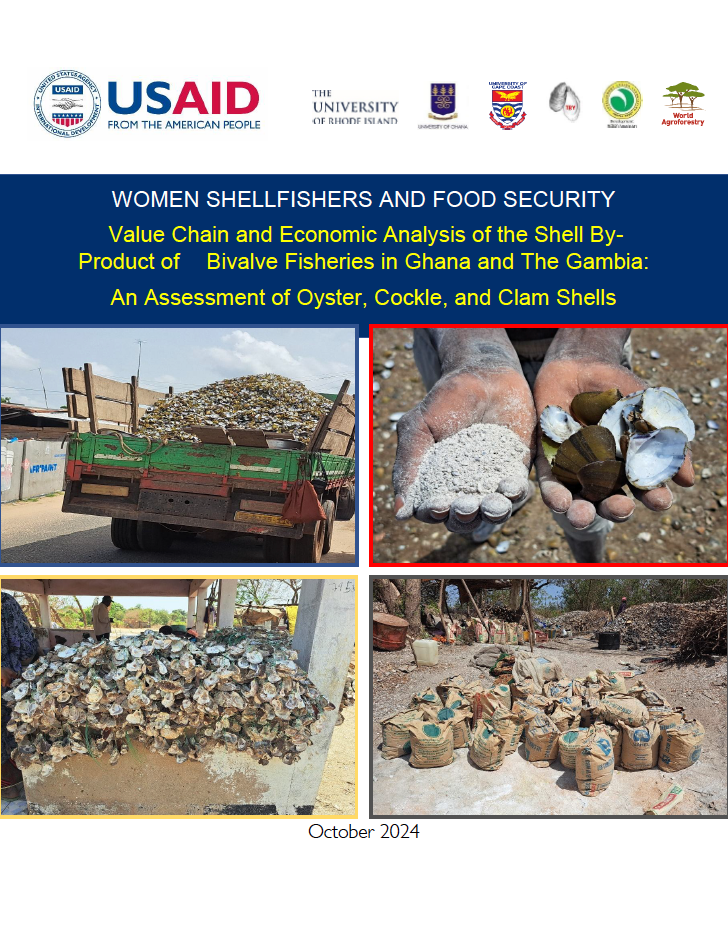
PUBLICATIONS

Peer-reviewed Article
Mangrove ecosystems mapping in parts of Ghana and The Gambia for sustainable regeneration and utilizationAbstract
This study was conducted in parts of Ghana and The Gambia using remote sensing and participatory geographic information system (PGIS) to map mangrove vegetation and associated land use land cover types. The selected sites support shellfishery activities, and mangrove loss threatens ecosystem functionality and local communities’ livelihoods. The results revealed that mangroves are more fragmented and declining in Ghana sites, while in The Gambia, they are more extensive and stable, with a clear zonation of Rhizophora and Avicennia species. PGIS revealed that communities value mangrove species differently, informing the management systems. Avicennia species that were more abundant in Ghana sites were mainly used for livelihood activities such as fuelwood and the construction of fish traps. Rhizophora species that were more dominant in The Gambia sites have better oyster attachments due to their root systems and were more valued by the shellfishing communities. Triangulated results from remote sensing and PGIS established various drivers and threats to mangrove vegetation, including mangrove dieback, illegal harvesting, soil salinity, land use changes/conversion, waste dumping/pollution, and the effects of climate change. Lessons for sustainable mangrove area co-management included context-specific interventions based on livelihood needs, continuous community awareness, capacity development for effective mangrove restoration and conservation, and diversification of livelihood options. It is also crucial to develop the enabling environment through policies that strengthen co-management, local and national governance systems, and enforcement of existing policies. The study reiterated the value of integrated resource mapping and results validation with stakeholders who are either users or managers of these resources.
Keywords: Coastal management, Remote sensing, Shellfisheries, Natural resources mapping, Mangroves, Participatory GIS, Land use land cover
Mar, 2025
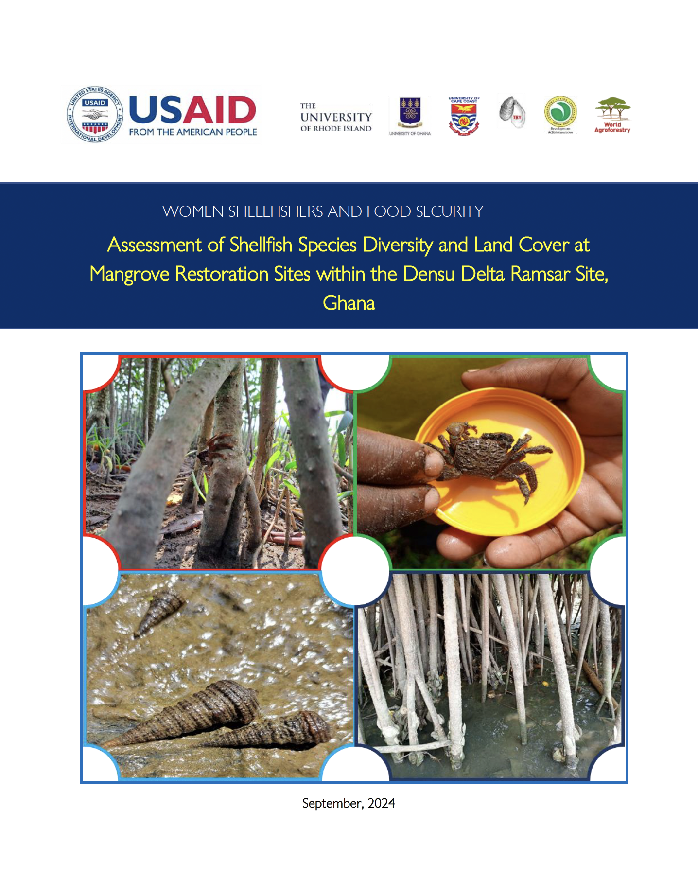
Technical Report
Assessment of Shellfish Species Diversity and Land Cover at Mangrove Restoration Sites within the Densu Delta Ramsar Site, GhanaThis report presents the findings of a baseline study of land cover and shellfish species diversity conducted in January 2024 at two mangrove restoration sites within the Densu Delta; one site (Site 1) replanted in 2017 as part of the USAID/Ghana Sustainable Fisheries Management Project (SFMP) and another site (Site 2) replanted in 2023 through the USAID Women Shellfishers and Food Security project (WSFS). These restoration efforts were aimed at enhancing shellfish production to support the livelihoods of women shellfish harvesters and provide other ecological benefits. The Centre of Coastal Management of the University of Cape Coast conducted the baseline biodiversity assessment using various methods, including land cover surveys, shellfish sampling, and data analysis to establish baselines and inform future assessments of mangrove restoration impacts on shellfisheries biodiversity. Key findings from the land cover survey revealed that Site 1 predominantly consisted of mangrove cover, which accounted for the majority (59.4%) of the land cover in the 18 sampled quadrants. In contrast, Site 2 was dominated by grass cover (45.8%), with significantly less mangrove coverage (3.1%). Results of the current study show that the differences in land cover at the two sites may have considerable bearing on the development and diversity of the shellfish community at each of these sites. Seven shellfish species were encountered at Site 1, whereas Site 2 had four species. The purple mangrove crabs and hermit crabs were observed at Site 1 only. The West African mangrove oysters were found on the roots of the replanted mangroves at Site 1, where they constitute nearly 50% of the shellfish community with the highest mean density of 170 oysters per square meter. The overall higher species diversity and richness at the Site 1 compared to the newly planted Site 2, and the larger mean size of mud creepers at Site 1 compared to Site 2, is a function of time as the mangrove trees at Site 1 planted in 2017 have grown larger thereby providing habitat for expanded biodiversity. These findings highlight the benefits of the Densu Oyster Pickers Association’s (DOPA) mangrove reforestation efforts for improving the Densu Delta’s ecosystem and shellfisheries productivity, which eventually can result in improved food security and livelihood, among others. It is expected that shellfish diversity at Site 2 will also increase with time as the mangrove trees grow larger, and this will be confirmed through future monitoring. Most importantly, these observations provide a baseline for monitoring the development of replanted mangroves and changes in the land cover and shellfish fauna biodiversity over time.
Sep, 2024
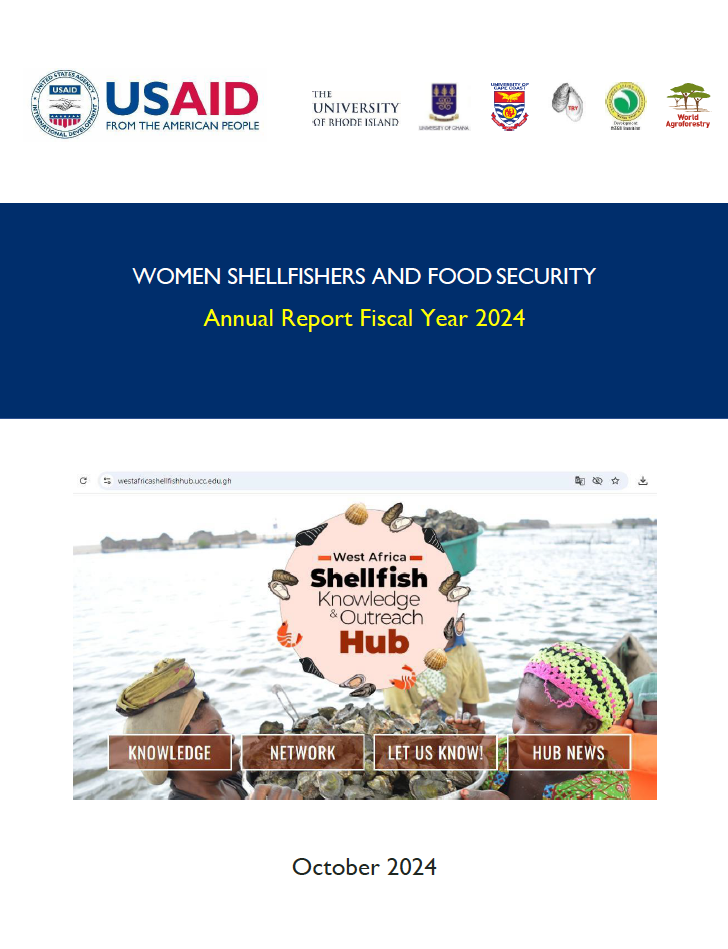
Project Report
2024 Annual Report: Women Shellfishers and Food Security ProjectThis report documents progress on Activity implementation at the end of the second year of the three-year extension (FY24), October 2023 – September 2024. (Phase II of the Women Shellfishers and Food Security Project).
Oct, 2024
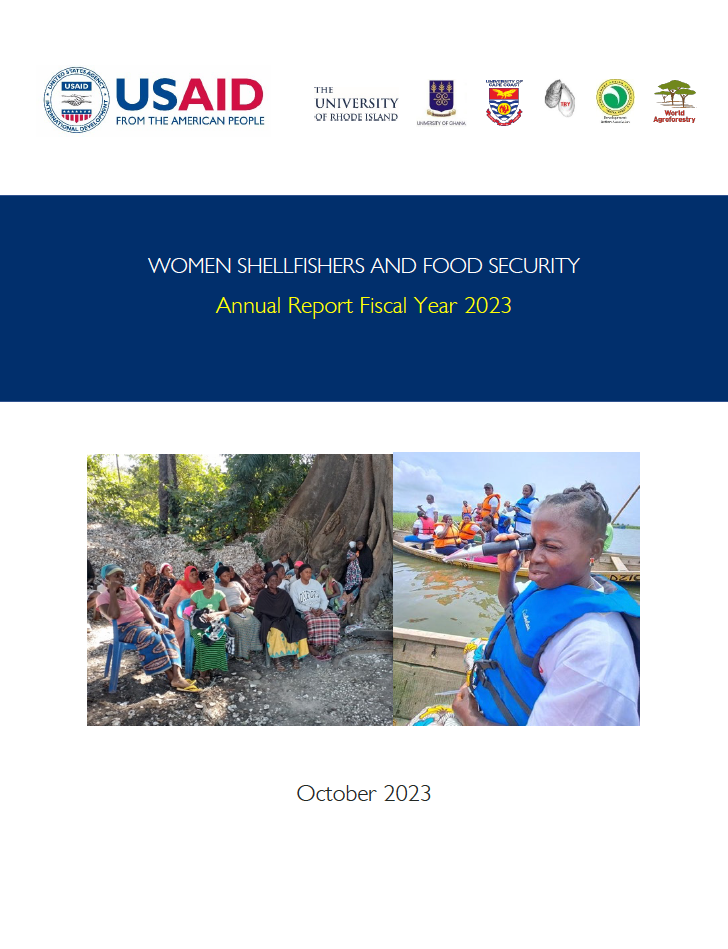
Project Report
2023 Annual Report: Women Shellfishers and Food Security ProjectThis report documents progress on project implementation at the end of the first year of the three-year extension (FY23), October 2022 – September 2023. (Phase II of the Women Shellfishers and Food Security Project).
Oct, 2023
OUR CORE PARTNERS












